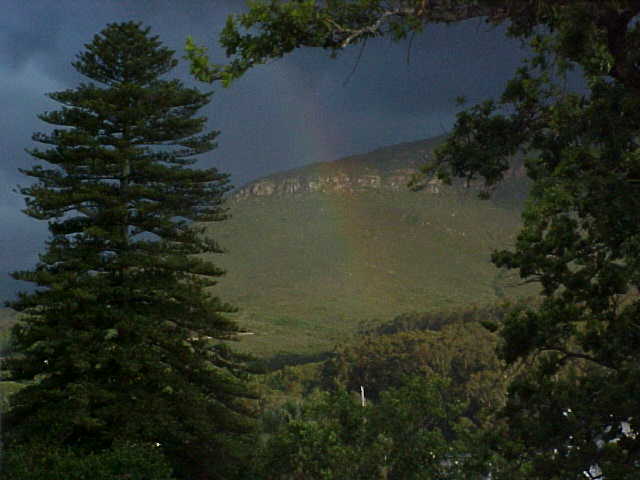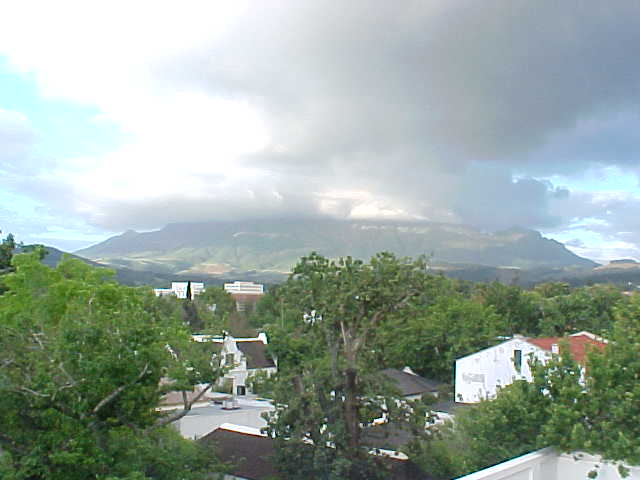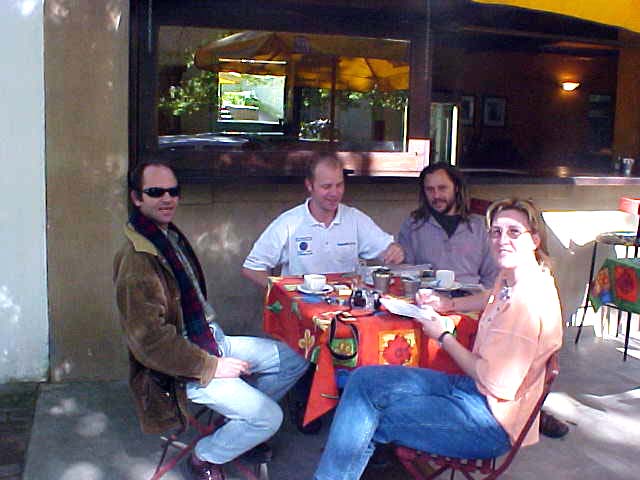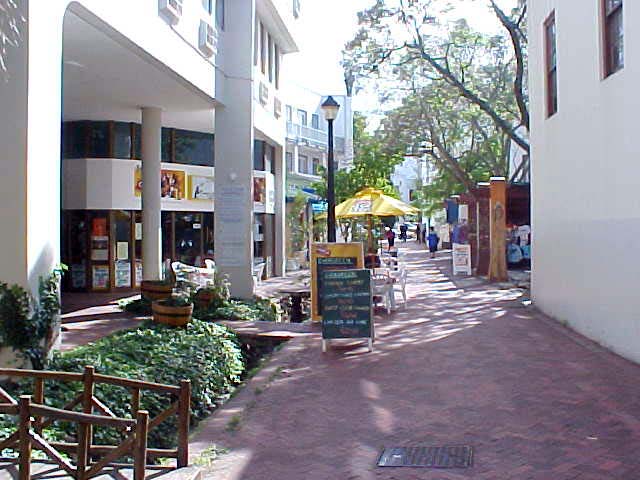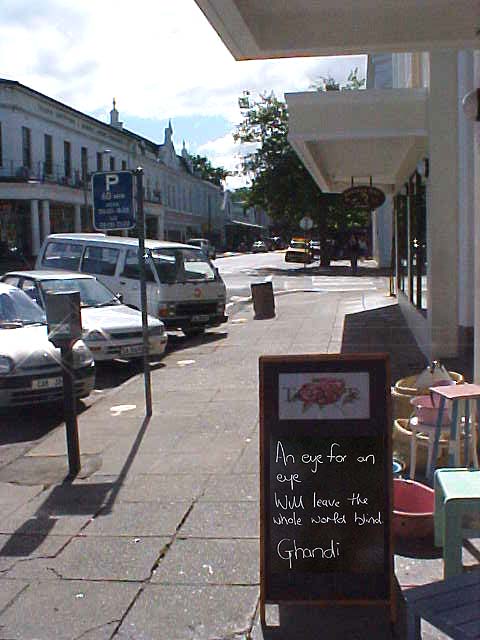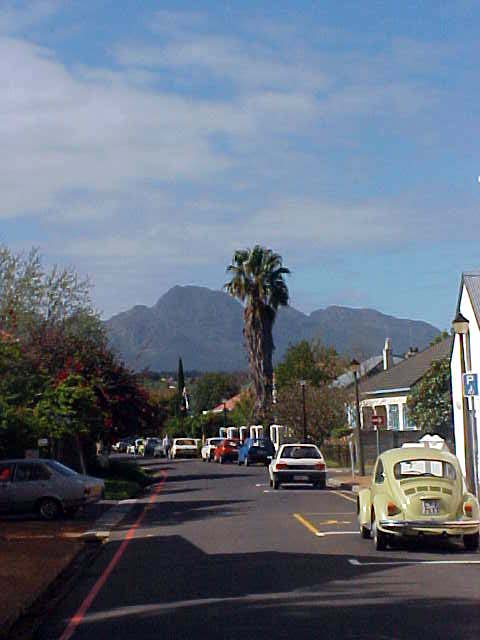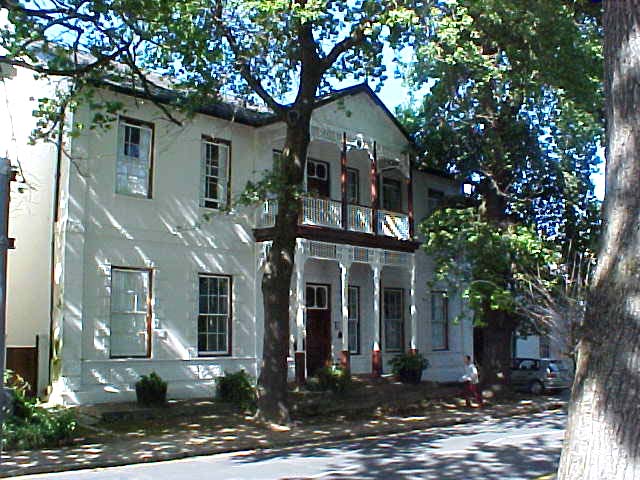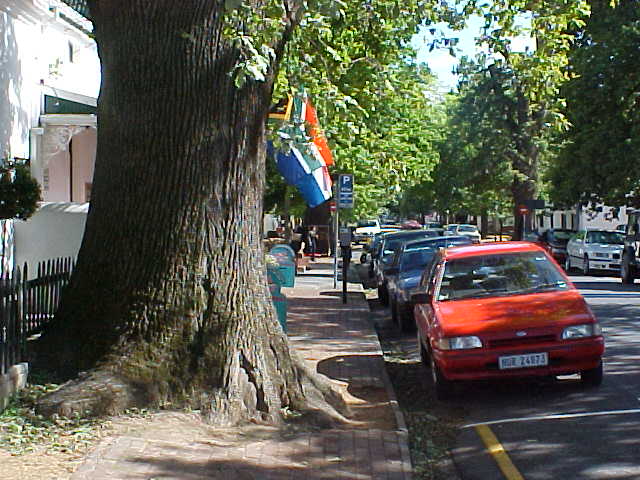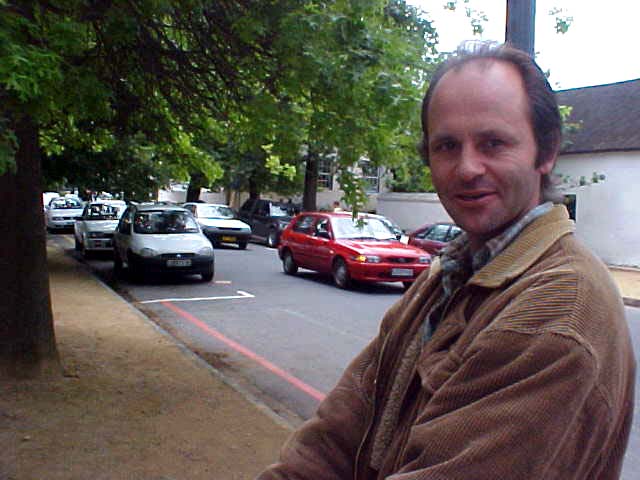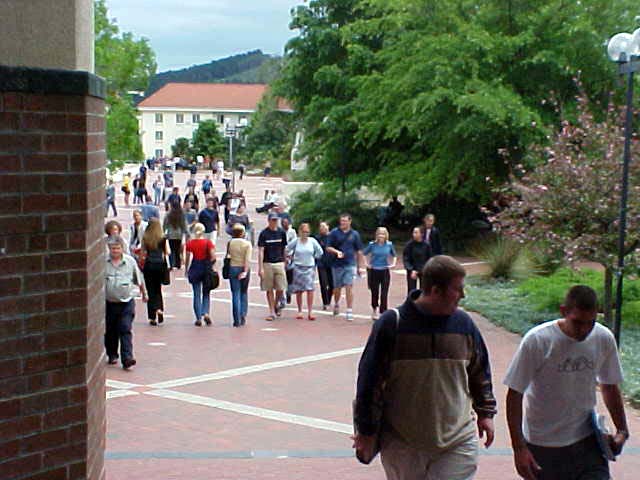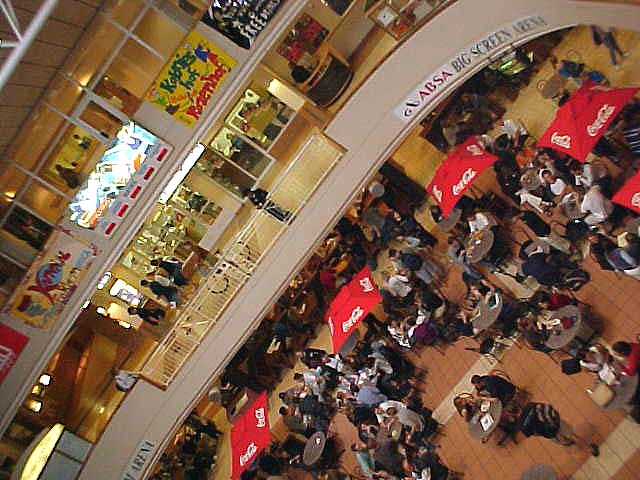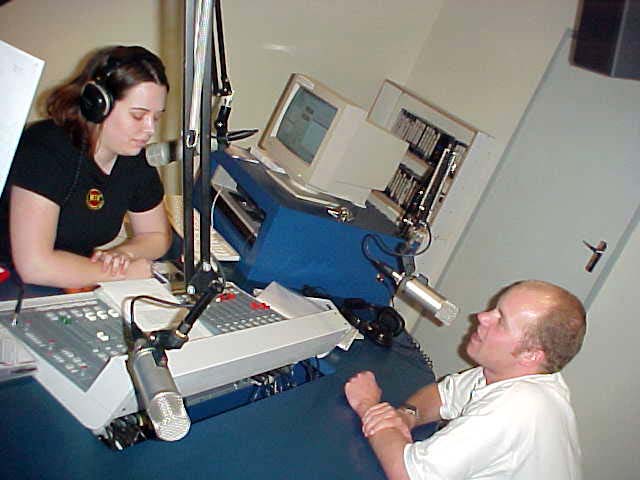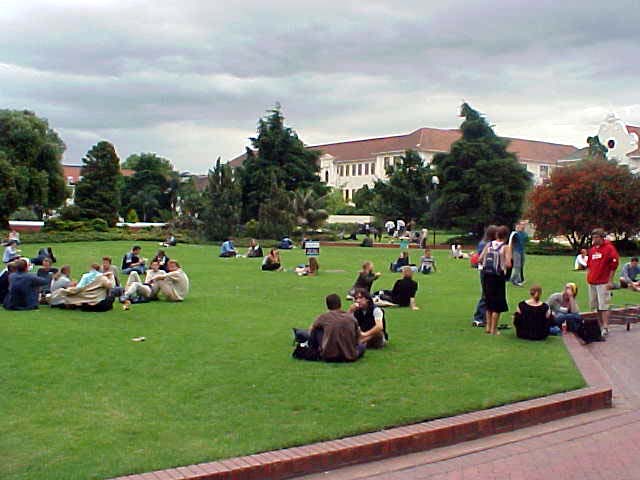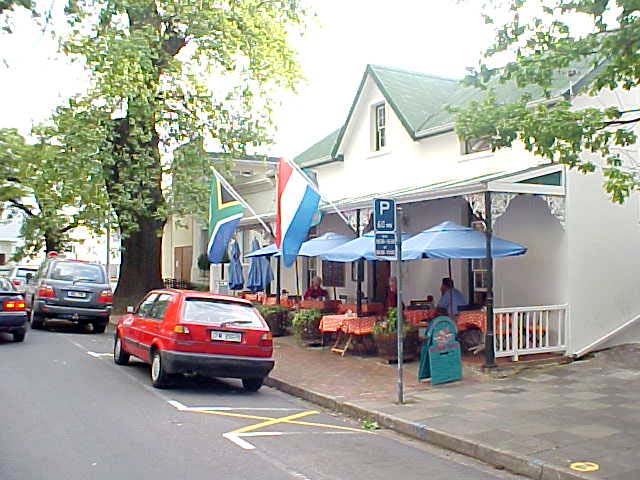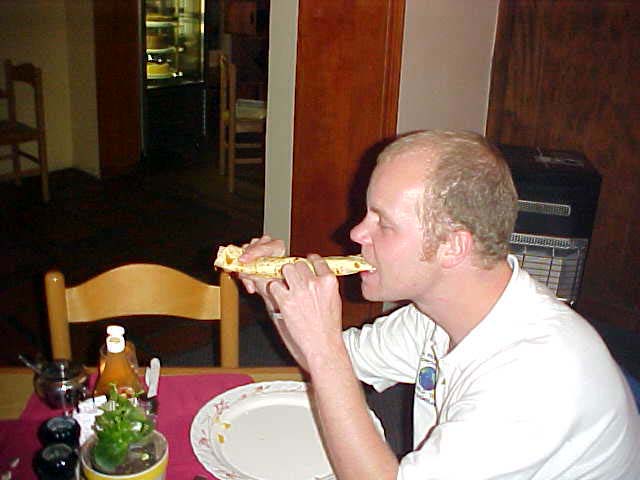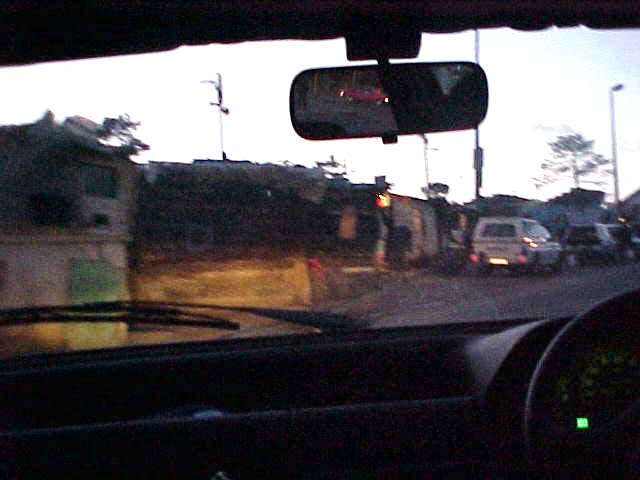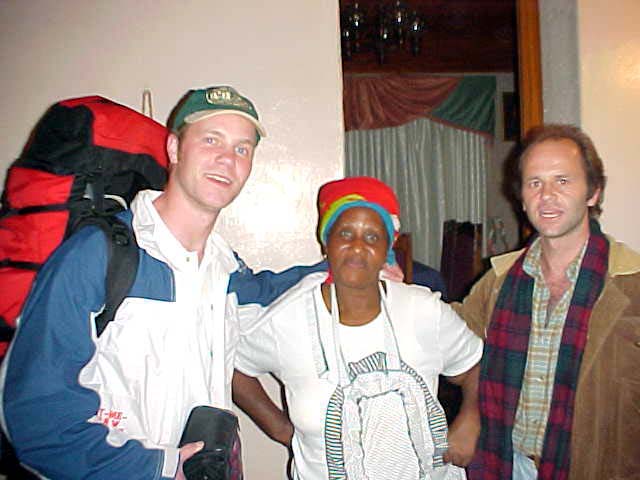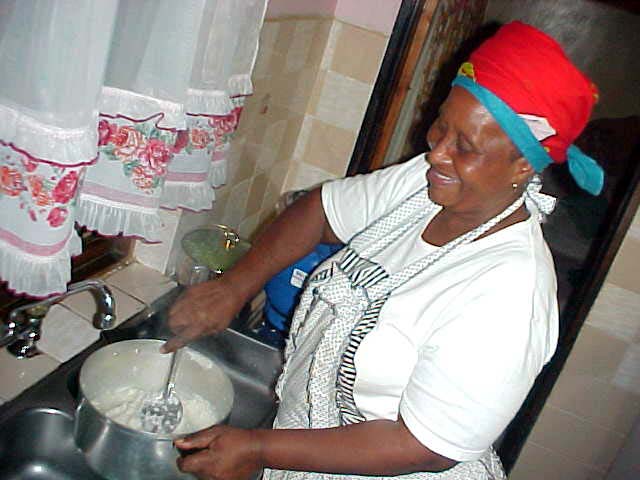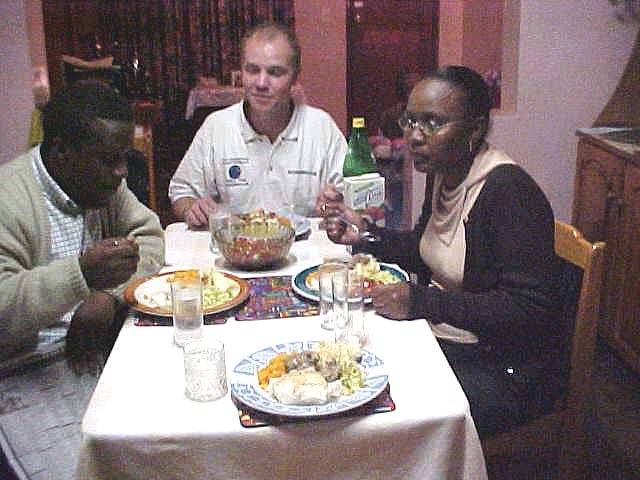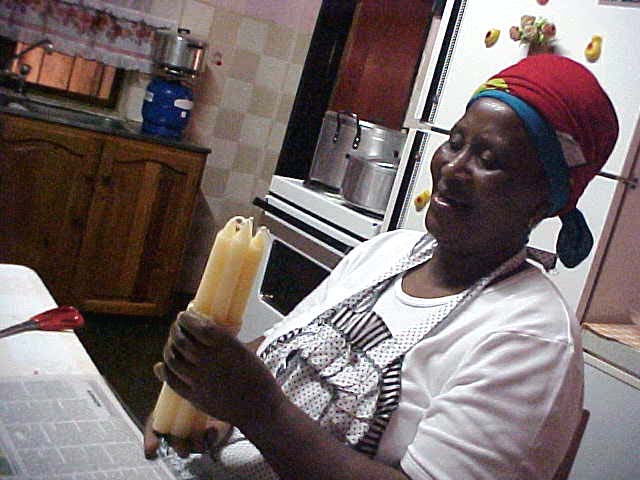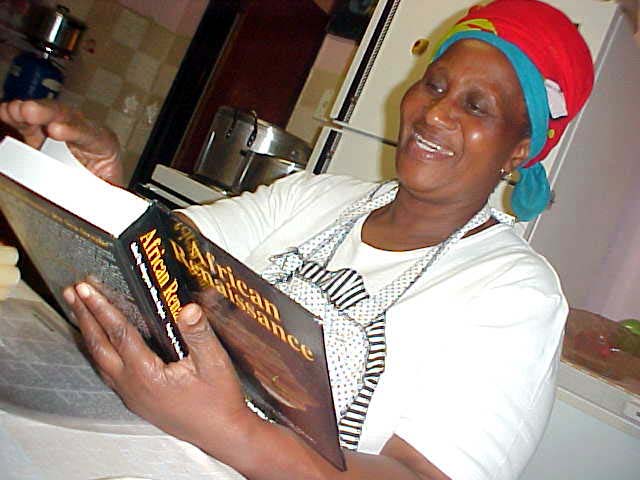
Letmestayforaday.com
sponsors always were:

www.ODLO.com

www.pac-safe.com
During my travels newspaper columns were published weekly in the Dutch daily newspaper

This project has been supported by these great and warmhearted companies:
Netherlands:
Paping Buitensport,
ODLO,
IPtower.nl,
AVRO Dutch Broadcasting Org.,
Travelcare, TunaFish,
Book A Tour, StadsRadio Rotterdam; UK:
Lazystudent, KissFM, The Sunday Times,
The Guardian; Isle of Man: SteamPacket/SeaCat; Ireland:
BikeTheBurren;
Belgium: Le Temps Perdu, Majer & Partners; Austria: OhmTV.com;
Norway:
Scanrail Pass, Hurtigruten, Best Western Hotels; South Africa:
eTravel, British
Airways Comair, CapeTalk,
BazBus;
Spain:
Inter Rail, Train
company Renfe; Australia: Channel
9 Television, Bridgeclimb, Harbourjet, SeaFM Central Coast,
Moonshadow Cruises, Australian Zoo, Fraser Island Excursions,
Hamilton Island Resort, FantaSea Cruises, Greyhound/McCafferty's Express Coaches,
Aussie Overlanders, TravelAbout.com.au, Travelworld,
Unlimited Internet,
Kangaroo Island SeaLink,
Acacia Apartments; Malaysia: Aircoast; Canada: VIA rail,
Cedar Springs Lodge,
BCTV/GlobalTV,
St. George Hotel,
VICKI GABEREAU talkshow,
Ziptrek Ecotours,
Whitler Blackcomb Ski Resort,
Summit Ski & Snowboard Rental,
High Mountain BrewHouse,
Cougar Mountain Snowmobiling,
Whistler Question Newspaper,
Snowshoe Inn,
First Air,
Nunanet.com,
Canadian North
Accommodations by the Sea,
DRL Coachlines Newfoundland,
The National Post and
Air North.
Reports
During my travels, I received free accommodation for a night in exchange for writing a daily travel diary. This diary documented how I reached my next destination, the hosts who welcomed me, the food I was offered, and other experiences along the way. Below, you will find the archives of these extensive reports. Please note that English is not my native language, and most entries were written quickly, often around midnight. Enjoy!Thursday, 18 October 2001
Stellenbosch --> Kayamandi, Stellenbosch (SA)
Carinus and Michael felt their waking up with a hangover from last night, while I had absolute no problems today. Being there for the press is always difficult.
But wow - did I get enriched by the stories of Shumi Ndlebe, the lady I stay with in the Kayamandi township of Stellenbosch. I am impressed!
After a shower, I joined Carinus and Michael with coffee at the Ha!ha! Bar, located just downstairs down the streets. Here a journalist lady of the Eikestad Nuus newspaper was interviewing them about me staying at their place and strangely only asking one or two questions to me. It was okay with me – Carinus had set me up for several other interviews.
After the coffee and reading the newspaper in this little coffeeshop where the personnel is really trying to amuse their customers in the early hours of the day, I got back to their apartment again for an intensive questionnaire by email.
When I finished that, the reporter and a photographer of Die Burger, the Afrikaans newspaper of the Western Cape, was all ready for their part of the day.
I answered the questions, even the question about how I could cope with all those same questions that must be asked me within my on-media-depending project. It’s basically very simple. I can’t neglect the press and I –indeed- depend on them for the publicity around this website. And I can’t just demand from my host that they read all the information about me on the website or give them a list of ‘often asked questions by hosts’ on paper before I’d really talk to them. How arrogant would that be!?
Now, it’s a frequently said line by me: I travel for free, answering questions and telling all the stories is just the price I’ll have to pay for it. Fortunately every story will be different, because everyday is another day in this project…
And after the interview the photographer took me out on the balcony and made shots of me and my hosts, to continue with me and my backpack hitchhiking down the main road to the next city. Not that I was going to do that, but the photographer also has his fine ideas.
Michael asked me “So, that must be very tiring?”, which I answered with a sigh. I am used to it, but not four in a row – as we were on our way to the university building where a radio presenter at the MFM university community radio wanted to have a few words with me.
Michael treated me with a coke and some biltong as all the interviews by the Stellenbosch media was over. “Hey Ramon, you are free now,” he said.
I used one of their office computers to write the report that I could not write yesterday night and had a short nap before it was getting time that Michael and Carinus would bring me to my next destination.
Michael has arranged that I could stay a night in a township, as that would be a much different experience for me than I have already had since my arrival in Cape Town. I had been in Mandela Park township when I arrived in Houtbay, but I had not stayed there yet.
Shumi Ndlebe lives in the township and has a few spare rooms in her home and is planning to make it a guesthouse. They idea of letting me stay in the future guesthouse was a good one and I was very curious to wait I had to expect.
When the sun had set, Carinus and Michael brought me to Kayamandi, as the township just outside of Stellenbosch is called, and they introduced me to Shumi.
I thanked Carinus and Michael for letting me stay for a day at their place and got settled in the home of Shumi.
It was totally not what I expected. Shumi showed me the room I was going to sleep in and I was very surprised. Like in all fancy commercial hotels, this room did not look like just a room with a bed, but like a room for the first class passengers on the Titanic.
Shumi showed me around her house and explained the empty rooms. It has to be seen in a cultural perspective that the parents always live with their parents and the children in one house. But things have changed. Shumi is now the oldest lady in the family and her only son decided to live on his own with his wife and child.
Now the rooms where once her son Charles and the grandchild slept are not in use any more.
As anybody in a township can need money, she decided to try and start a guesthouse in this township. Michael will be voluntarily providing all the necessary material to get it known in the city and to the visiting tourists. Sleeping in a township is already a different experience.
In the kitchen she was preparing big kettles of food for dinner. Shumi’s son Charles and his wife Dudu also joined for dinner and I had interesting talks with them.
Charles told me that he is a teacher at the nearby high school and invited me to come over for a visit tomorrow.
While Shumi filled the plates and I drank litchi juice, he told me about the difficulties with educating the children in the townships.
However the official Apartheid does not exist anymore, some 99% of the population of a township is black and negligently educated. With the support of the new chosen democratic government and the local (black) churches schools have been built to educate the young kids and prepare them for a brighter future.
Charles thinks it is partly because of the fact that those children are the first in the family to get proper education and that they had to live through all the struggles of a new era in the first place, that the kids are difficult to keep under control. They are too distracted to pay attention or either do their homework.
There is no possibility to punish kids in school. While in Europe sending a kid out of the class would make him cry and sending him home gives him the fear of an angry parent. Here in South Africa the kids love to be outdoors. And mother wouldn’t care as she will be busy collecting money on some unknown way.
Before dinner Shumi asked me if I would like to follow for prayer, but I gave her the honour as she was my hostess for tonight. In a for me strange language she said thank you to God for giving us the spices we eat and the good day we had. I am not religious myself, but situations like this do touch me and I treat those moments with upmost respect.
I understood Charles’ hidden complaints about the job is trying to practice out and as I could notice, with a strong motivation.
We can’t blame these kids for their way of living with their education, although it won’t give such a brighter future. “In my class I sometimes have over 50 or 60 children to educate. I barely have room to walk around in front of my writing board, that full is the class room. But when I ask who has done their homework, mostly some five of them all would have done it.”
There just isn’t a stimulation, or visual goal to go for. I could totally understand the situation; what would make me go to school if I would live here. I wouldn’t know and my parents wouldn’t be the ones telling me it is good to go...
Shumi had made stiff porridge, or milliepap in Afrikaans, together with different vegetables, potatoes and chicken, which of course filled enormously for me.
The ladies started washing the dishes and my help was refused. “No no no,” said Shumi, “I would never let my guests do the dishes. You just stay sit.” Which I did politely while conversing with Charles about what I am doing.
He was very intrigued by my certain philosophy and how I endured it all the way to South Africa. He understood me when I explained him that I not only travel for my own interest, but also to share my experiences with people all over the world – to show how the world lives. And that was the part he liked. Other people will get to know these little things as life in a township.
Not long after this Charles and his wife left the house, ready to head to bed. I was going to see Charles tomorrow again at the high school.
Shumi joined me at the kitchen table and told me her life story as I asked about it.
She was one-year-old when her parents moved into this house, when it was just a one room structure, in 1943. She was born “on the farms” as she call it, where her parents kept on working as they lived in the town ships.
The Apartheid laws had passed, seperating the blacks from the whites and the blacks had to leave the town and live in their own areas.
She has always been a struggler in life. When she was 19 years old she fell in love with a man and married him, being his second woman. Her parents totally disagreed with her, but she loved him.
But in those times life in the townships was like living in a war. All black people needed to have their pass with them all the time. The pass would tell the white police who they are, where they live and where they would be permitted to go. Without the permit you were not allowed to visit your own family in another township.
It was in 1960 when the blacks heavily protested against this system and banned the law to have their passes with them. She got taken to jail on her 19th, while she was pregnant from her son Charles. He eventually was born in jail on July the 1st, 1960.
Happily she was released after more than five months of imprisonment, with her one-month-old son. Her case was closed because of the lack of evidence. But some people in the same situation were in jail for over six years.
“The townships were war locations,” she told me. She remembered how all the citizens of the township wanted to go to the magistrate in the town centre to protest against the passes for the blacks. Of course the white police stopped the long march. The men were at the front line and were told they’d get shot if they didn’t return. The women and children were all the way in the back and didn’t know what was going on and just wanted to keep on going. Eventually the police started firing at the people, killing them without remorse. “It was a big chaos at that moment. Nobody knew what was going on and we all fled back to our houses.”
“But that was life and it would happen over and over again and people would die – just on their path to justice.”
“My husband left to Transkei with his 3rd woman and on my 22nd my parents told me that I had to save myself and get a job.” The husband never returned again. The last thing she heard about him was that he had passed away in 1994, leaving six women behind.
She started a little job in collecting clothing in the township and washed it by hand and ironed for days in a row. But it gave her the money and she became the first person in the township to have a car.
With the car she would bring people to other townships, to have them visit friends or family, of course in exchange for a fare or dry meat. “Like a taxi?” I asked. “Yes!” she smiled. “I was a taxi driver. And I was making good money.” She talks with pride.
“But life was also wonderful in Kayamandi. I was young and loved to play tennis.” She played tennis with coloured people outside of the township and people paid a little bit of money to see the games.
When it got more efficient for her, she started collecting dry cleaning clothing and brought it to town in return for commission. But business wasn’t going that good anymore, until a friend of her told her about the goldmine: selling chicken feet.
“I started selling chicken feet that I could buy from a local farm for a small price. I’d cooked them in my kitchen and the next day I sell it on the street. People were crazy about it! I made about 600 Rand (US$80) a week with selling the feet for 5 cents.”
And that was really extraordinary for that time.
“I was able to have the house enlarged with a few extra rooms. A real kitchen area, a bedroom and a living room and I could even pay the people who built it.”
And she still sells the chicken feet, however now only at the local primary school and high school. “When I now make 200 Rand a week, I already say ‘Thank you, Lord’, but I’ll go on as it keeps me busy.”
She loves catering and she cooks for other people too. When the money was floating in, she even prepared meals for the sick and elderly people in the townships. Of course for a fare, but at least they had decent meals.
She tells me how in December, when the summer here has officially started, there is a big Christmas party at the community house. Then she is the cook and prepares delicious dinners for everybody attending.
It’s supported by the church, who is financed by the grey ladies overseas as she calls the elderly South Africans living in Northern America.
She is concerned about all the people on the streets without a job or a thing to do. “They are sometimes just waiting on street corners, waiting for money or food.” She told the Father at the church that the money should be shared with those people too. And when the system got introduced that the church yard had to be cleaned and there were some more jobs to do, suddenly people stood in line to broom around.
“People have to learn that they have to work for money and food, that is exactly what I have been doing all my life.” Whenever she needs a helping hand in her house, she pays the people who help as it is the most normal case in the world. “I stand on my own feet if it comes to making money. Everybody should work for it or do at least something for it.”
But she is becoming an old lady now. She is on medicines against high blood pressures and diabetes. “I can’t go on with my chicken feet for such a long time. That’s why I want to start a guesthouse. My rooms are empty, I love to cook and it will help me out enough.”
It was getting 10.30pm on the clock and she had to go out early in the morning to collect clothing and bring it to the dry cleaner. Around 9 she would awaken me and after a breakfast I’d join her in her chicken feet business.
Dogs were barking and the chickens outside of her house were making nocturnal sounds. I heard nothing else. I slept in a township...
If you would ever get to Stellenbosch in South Africa, visit the Kayamandi Township and stay at Shumi’s guesthouse. It is well worth it and Shumi is an unforgettable strong character with interesting stories about life.
Good night Stellenbosch!
Ramon.
Where am I at this moment?
Click here to see the map.


